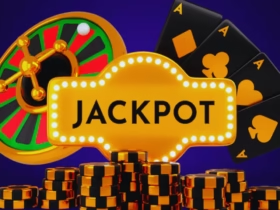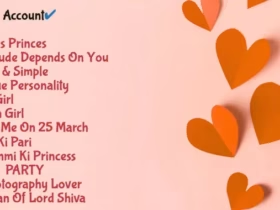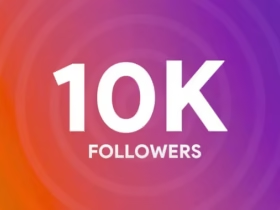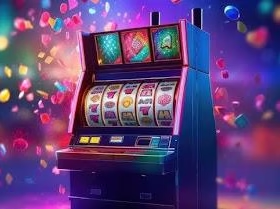There’s no denying it—we live in an era dominated by online gaming. Whether you’re a hardcore competitive player or someone who unwinds with a casual tap-and-play session, games have become more than entertainment. They’re culture, connection, and even income for some. From massive MMORPGs to mobile brain-teasers, today’s titles are designed not just to entertain, but to create loyalty and lifestyle. So which games top the charts globally right now?
Before jumping into the ranking, it’s worth noting that popularity doesn’t only belong to shooters and fantasy quests. Sites like Situs Judi Slot have become incredibly popular among players looking for fast-paced fun, simple mechanics, and the chance to win big. With colorful visuals, engaging sounds, and endless options, slot platforms attract millions globally, right alongside more traditional titles. But now, let’s look at the five giants currently ruling the online gaming space.
Fortnite
Love it or hate it, Fortnite isn’t just a game—it’s a phenomenon. With its vibrant graphics, fast-paced battle royale format, and ever-evolving content, it continues to dominate despite being released back in 2017. Part of its charm lies in the live events that have featured everything from global concerts to full-blown cinematic stories playing out in real-time.
Fortnite’s user base stretches across continents and generations. Kids, teenagers, streamers, even celebrities jump into the chaos of Tilted Towers. Epic Games has created a social hub as much as a shooter. The game is free to play, making it easily accessible, and the constant influx of skins, dances, emotes, and collaborations keeps things feeling fresh. Marvel characters? Naruto? Travis Scott? Fortnite has it all. It’s entertainment on steroids.
And unlike traditional gaming models, Fortnite doesn’t rely on pay-to-win strategies. The monetization lies in appearance and experience, allowing fair play across all skill levels. It’s not just a game anymore—it’s a digital playground.
League of Legends
If there were a Mount Olympus of competitive gaming, League of Legends would be seated comfortably at the top. Riot Games released this MOBA (multiplayer online battle arena) in 2009, and it hasn’t let up since. With millions of daily active users and some of the biggest esports tournaments in the world, League’s place in gaming history is secure.
Its appeal? Depth and competition. Each match pits players in five-versus-five strategy battles where coordination, timing, and precision mean everything. A thousand small decisions shape every second. With a constantly rotating roster of champions, frequent patches, and a strong esports ecosystem, League of Legends feels alive.
The international fanbase is unmatched. Korea, China, Europe, North America—each region brings a different flavor to the game. Watching the LoL World Championship is like watching the Super Bowl, but with dragons and magic.
And while the learning curve is steep, it’s exactly that challenge that keeps players returning. Every loss is a lesson. Every victory is a reward hard-earned. No two games are ever the same.
PUBG: Battlegrounds
PlayerUnknown’s Battlegrounds (PUBG) brought battle royale into the spotlight before Fortnite popularized it. While its influence has been somewhat overshadowed, PUBG remains immensely popular, especially in countries like India, Pakistan, China, and parts of Southeast Asia.
Unlike Fortnite’s flashy style, PUBG keeps things gritty and realistic. The tension builds slowly—parachuting into an abandoned area, gathering supplies, watching your back, and praying no sniper has you in their crosshairs. It’s slow-burn intensity at its finest.
What sets PUBG apart is its balance between randomness and skill. Yes, loot is random, but strategic movement, aim accuracy, and environmental awareness are key. Whether you’re playing on PC, console, or mobile, every match delivers a unique combination of thrill and terror.
Its mobile version has arguably outpaced the original in terms of reach. PUBG Mobile is practically a cultural staple in several regions, and mobile esports events for the game now attract millions of viewers. This is proof that polished mechanics, when scaled well to devices, can break every limitation.
Genshin Impact
Now here’s a game that nobody saw coming. When Genshin Impact launched in 2020, it raised eyebrows—not only for its stunning visuals and open-world mechanics but for the fact that it was free. Developed by Chinese studio miHoYo, the game blends elements of action-RPGs, gacha mechanics, and anime-style storytelling into a seamless mobile and PC experience.
Genshin’s popularity skyrocketed thanks to its expansive world, lovable characters, and storylines that continue to grow. Players don’t just log in to fight monsters. They form emotional connections to the characters, follow lore updates, and engage with seasonal content that feels more like interactive drama than just a quest list.
Its monetization through gacha (random character pulls) can be a sore point for some, but for the vast majority of its audience, it’s a fair exchange. Many players invest hours and even money to build their dream teams, chase rare items, or simply to enjoy every inch of the ever-growing game map.
By combining console-level quality with mobile accessibility, Genshin Impact has become the gold standard for what mobile gaming can achieve. It’s polished, passionate, and persistent—and with plans for expansions and sequels already underway, it’s not leaving anytime soon.
Roblox
Roblox isn’t a game—it’s a universe of them. It’s both a platform and a toolkit where users can create, share, and play thousands of mini-games designed by other players. While many associate it with younger audiences, the sheer creativity and flexibility it offers have turned it into one of the most played online ecosystems globally.
The success of Roblox lies in its freedom. Want to simulate a theme park? Raise a virtual pet? Role-play as a pirate? Build your own survival simulator? It’s all possible here. With millions of user-created experiences and a dedicated developer community, Roblox is a never-ending loop of content.
What’s even more fascinating is its integration into real-life events. From virtual fashion shows with Gucci to music concerts hosted by global artists, Roblox is pushing the idea of digital life forward. And since players can earn money from their games, it has created a new generation of teenage developers cashing in on their creativity.
In this chaotic catalog of online interaction, even the simplicity of spinning reels on sites like Slot88 can coexist. Sometimes players switch from constructing cities to relaxing with digital slots, showing how broad the online gaming appetite has become.
So why do these games succeed where others fail?
At their core, each of these top titles offers more than entertainment. They provide experiences. Whether it’s the adrenaline of a last-man-standing victory, the satisfaction of pulling a five-star character, or the creativity of designing your own virtual adventure, the connection runs deeper than gameplay mechanics.
Players aren’t just logging in to kill time. They’re investing in a hobby that evolves with them, socially, emotionally, and sometimes even financially. Whether they’re seeking competition, creativity, connection, or just a break from reality, the gaming world is vast and inclusive.
And that’s why titles like Fortnite, League of Legends, PUBG, Genshin Impact, and Roblox continue to thrive. They’re not riding on past glory—they’re constantly growing, adapting, and offering something new with every update.
Online games have become digital meeting places, creative canvases, and emotional outlets. Whether you’re building empires in Roblox, climbing the ranked ladder in LoL, surviving battlegrounds in PUBG, chasing wishes in Genshin, or even spinning luck on Situs Judi Slot, you’re part of something much bigger than pixels and code.
In a world that’s always connected, online games aren’t going anywhere. They’re evolving faster than ever, pulling us into stories, competitions, and experiences we never imagined possible—and the best part? It’s just getting started.








